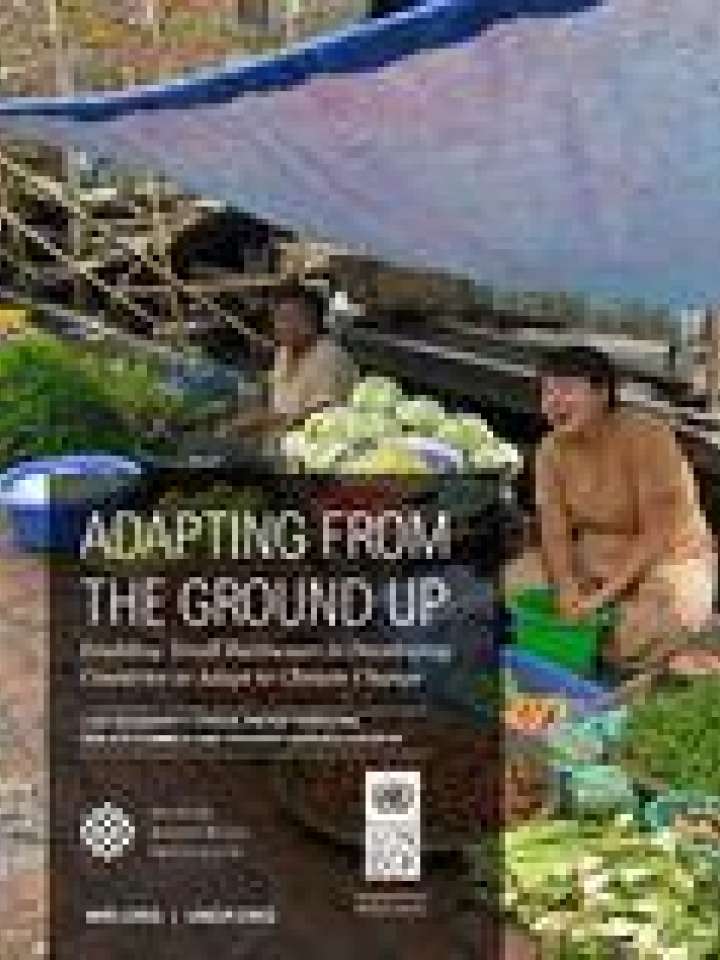Adapting from the ground up: enabling small businesses in developing countries to adapt to climate change
This report explains the breadth of barriers facing businesses, in light of global estimates showing that the costs of climate change adaptation in developing countries will far exceed the public sector’s financial resources. These barriers include access to information and finance, technical capacity, and policy. The report emphasizes that to maintain the development pathways of developing countries, urgent action is needed from the public sector to form sound policies that address climate challenges and focus especially on the private sector, which more directly supports the livelihoods of the majority of people living in vulnerable communities. Although leveraging finance from donors is important for adaptation efforts, it will be fundamental to encourage the private sector to invest in adaptation and, in so doing, also minimize business risks and strengthen the resilience of vulnerable communities. In addition the report proposes a number of interventions that policymakers can use to address the barriers and actively support vulnerable business enterprises.
The report draws upon a growing body of research and projects on private sector adaptation. It shares examples from case studies of interventions in Cambodia, Nicaragua, Tajikistan, and Zimbabwe, which successfully catalyzed Micro and Small Enterprise (MSE) investment in climate adaptation measures in the agriculture sector. The report also presents a number of shorter case studies from projects and initiatives in Benin, Cook Islands, Ethiopia, Honduras, India, Namibia, Rwanda, and Tanzania.
Explore further

